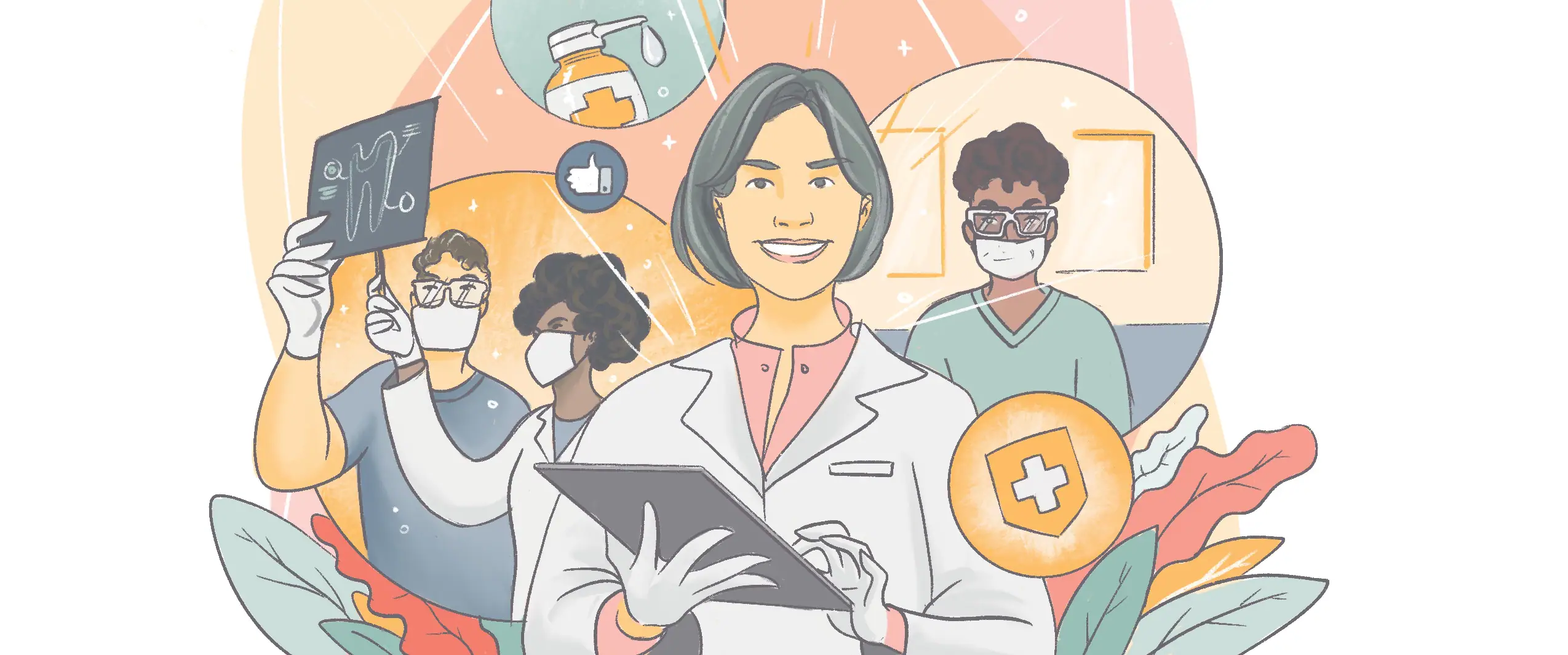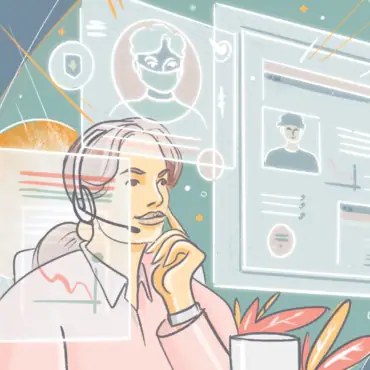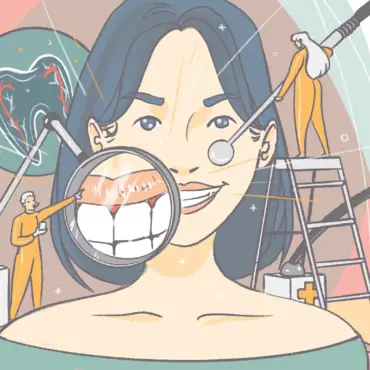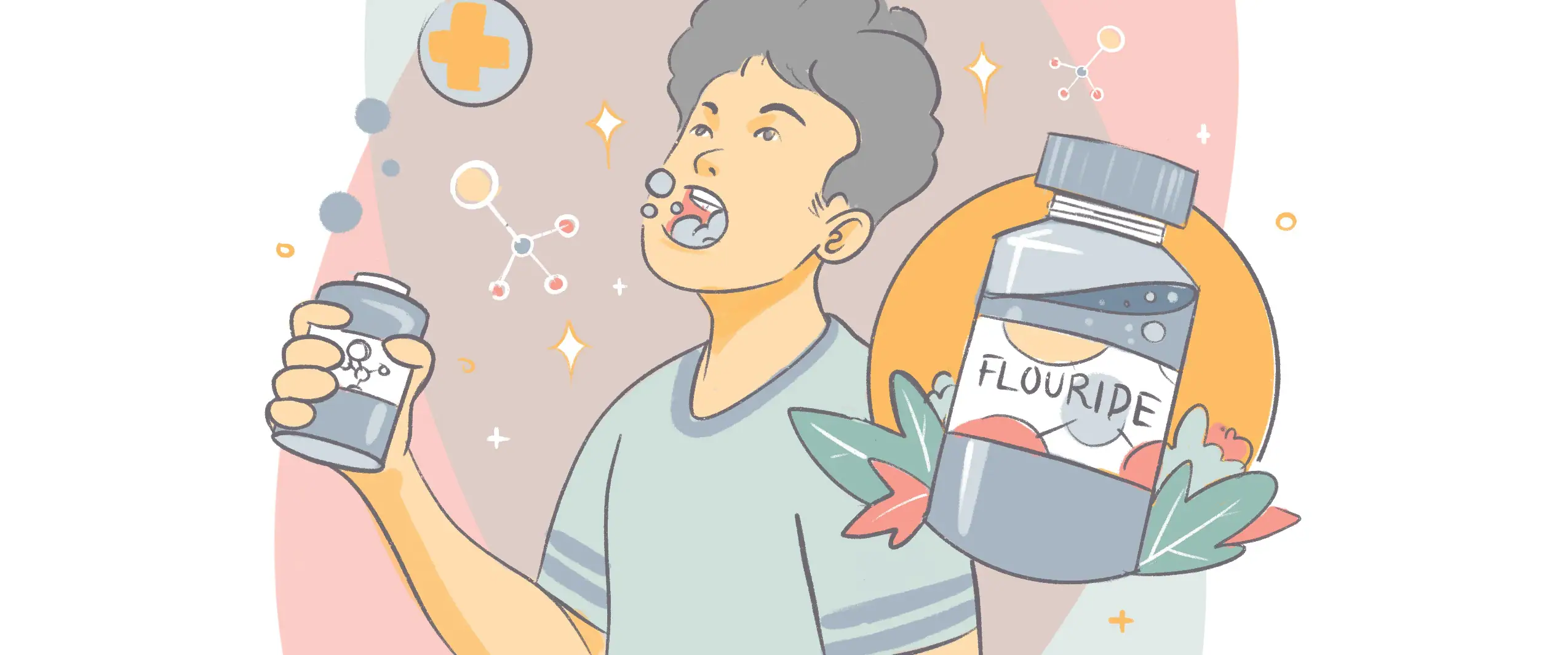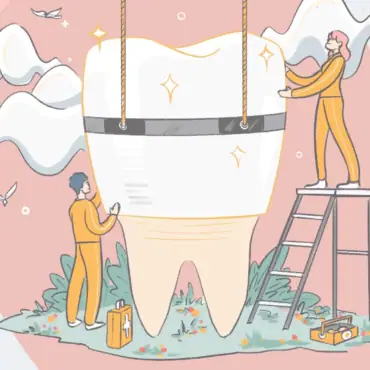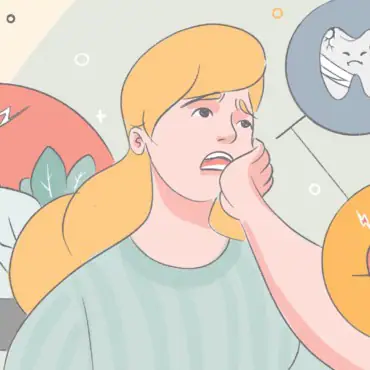Updated as of February 2021
The COVID-19 pandemic snuck up on the entire world and changed the way we live, work, and function. Instead of just getting ready and going out to run errands, now you need to wear a mask, make sure you aren’t near other people, and avoid certain spaces.
And now, your dentist appointment is coming up, and you aren’t sure what to do. We understand your concern. Let’s look into safety around going to the dentist during the COVID-19 pandemic and the importance of protecting your oral health in these challenging times.
Are dentists open now?
Dentist offices across the United States and Canada are open now, but they were shut down for a few months last spring.
The novel coronavirus, also known as COVID-19, has spread across the world within a few months, and local governments were forced to shut down many businesses. Dentist offices were no exception. On March 16, 2020, the American Dental Association (ADA) issued a statement wherein they recommended the dental practices postpone elective dental procedures until April 6, 2020. The CDA and associated provincial bodies issued a similar statement in April in Canada.
Due to the increased number of infections, the ADA updated their recommendation on April 1 and advised offices to remain closed to all except emergency and urgent procedures. The updated recommendation was meant to be in force until April 30, 2020. Due to these decisions, access to dental care was limited to millions of people in the US.
We reward you for staying on top of your health!
The ADA Health Policy Institute launched a biweekly poll the week of March 26. The main objective was to evaluate the impact of COVID-19 on dental practices. Results showed 76% of dentists they surveyed had closed their practices to all but emergency cases. Additionally, 19% indicated their dental practices were closed entirely, while 5% were open but had a lower patient volume than usual. Unsurprisingly, 0% of surveyed practices were open or had patient volume as usual.
Although dental practices were allowed to reopen in late spring of 2020, this varied according to state and provincial government policies. While they managed to bounce back, dental practices still need to adhere to certain measures and criteria in order to help prevent COVID-19 from spreading and from providing safety to their patients.
Are dentists open everywhere?
Yes, as mentioned above, dental offices across the United States and Canada are open. This is unlikely to change in places or states with a higher number of COVID-19 cases, as it has been shown in numerous studies that a dental office environment is extremely safe and not a vector for COVID-19 transmission.
For example, a shelter-in-place order issued on November 13 in New Mexico shut down nonessential in-person activities, but the decision was vague in terms of dentists. Instead, dentists were urged to use their professional judgment when responding to the status of the pandemic in their area. After a two-week order, the state promised to enact a tiered response system on December 2, thus allowing counties to lift restrictions after meeting certain health criteria.
Moreover, restrictions issued on November 15 for the next four weeks in Washington related to social gatherings and other activities do not place limitations on dental care.
To sum it up dentists are an essential service. A lot was learnt in the Spring of 2020 when offices were forced to shut down. With limited options on dental care there was an increase in Hospital emergency room visits for dental emergencies, and patients simply had to live with pain due to the inability to find a dentist accepting patients. Is it safe to go to the dentist during the COVID-19 pandemic?
As COVID-19 cases are still numerous and new infections happen daily in nearly every region, it’s easy to assume any public place or business is not the safest environment, the dental office included. You may even feel scared to schedule the appointment because you don’t want to get infected. However, dental offices are largely considered safer spaces, especially with extra precautionary measures the dentists have employed. To date, no where in the world has a dental office been a source of COVID transmission due to dentistry being performed.
In fact, a survey by the ADA indicates less than 1% of dentists across the US have tested positive for COVID-19. Even though some reports described dentistry as one of the high-risk professions for COVID-19 spreading, a survey by ADA shows the prevalence of infections is low. What’s more, 99% of dentists are using enhanced infection control procedures such as screening protocols and amplified disinfection practices when treating their patients. The survey focused on 2200 dentists in June and found that 82% of them were asymptomatic for one month before the survey. Also, 16.6% reported getting a COVID-19 test. These findings are important because they help demonstrate their commitment to the highest levels of patient care.
While it may seem surprising only 1% of dentists tested positive, when you dig deeper, it may not seem like such a big shock after all. Dentists prioritize the safety of their patients, regularly disinfect all the surfaces, and protect themselves while treating patients. During the pandemic, they have taken COVID-19 infections seriously and closely adhered to guidelines issued by the ADA and the CDC. Their adherence to these guidelines helps dentists to keep the dental team and their patients as safe as possible.
The risk of getting infected by a dentist is very low. You see, the dentist wears a mask, eye protection, gloves, and other pieces of protective gear, thus making the risk of infection minimal. Plus, the rates of infected dentists are low, and an infected dentist wouldn’t be going to work.
We reward you for staying on top of your health!
Always keep in mind that although dental professionals are at high risk of getting infected, the prevalence of infections is low, and it’s all because of measures they implement to keep their environment safe. Dentists are experts in infection control and maintain the highest standards of care. They started amplifying their precautions in the mid-80s during the height of the HIV/AIDS epidemic.
Why is it important to see the dentist?
COVID-19 pandemic and limited movements or socializing options should not stop you from seeing the dentist. Your teeth and gums won’t pause and wait for the pandemic to be over. If neglected, they may develop various problems, including gum disease and cavities.
Additionally, delaying routine care and checkup may create other healthcare problems. Gum disease is associated with a higher risk of developing chronic conditions such as heart disease. Gum disease can also increase the risk of lung infection and can lead to tooth loss.
Your checkups are also important for oral cancer detection. Oral cancer is a serious disease that manifests itself through various symptoms. Early detection is crucial for successful treatment and recovery. The best way to detect oral cancer early is to see your dentist regularly.
And regular dental cleanings can prevent tartar from eroding your teeth or creating tiny holes in them. As a result, regular checkups at the dentist’s office can help you prevent cavities. After all, cavities do not usually give warning signs as they develop and when untreated, they hurt.
In a nutshell, despite the challenges the COVID-19 pandemic brings along, we still need to care for our gums and teeth, protect them, and thereby support our health.
What are dental offices doing to prevent the spread of COVID-19?
Although dental offices are safer, dentists, and staff members across the country have implemented various measures to ensure dental offices remain a safe place for patients.
The protocol has changed significantly in dental practices because of the COVID-19 pandemic. Some of the most common changes include:
- Dentists are seeing fewer patients at a time and asking people to enter alone to reduce each patient’s potential number of interactions with others.
- The nurse takes a patient’s temperature as soon as they enter the office.
- Waiting room chair setup may be different than it used to be, as dental offices aim to ensure the patients maintain social distancing. Not only are chairs farther apart from one another, but the number of chairs is usually lower now.
- Dentists wear several layers of personal protective equipment such as N95 masks. These masks decrease aerosols dentists inhale during the procedure but also protect patients from things they exhale.
- Dentists and nurses also wear face shields to ensure saliva or blood doesn’t reach their eyes.
- During the treatment, dentists may use rubber dental dams on patients.
- To prevent the spread of COVID-19, the surfaces and tools in dental offices are disinfected more often.
- The tools are cleaned, covered, and replaced between uses.
- Patients need to wear a mask when entering the building or while sitting in a waiting room.
- Dentists may tell patients not to arrive at the appointment too early. If your appointment is scheduled at 10 am, strive to come to the office at that time rather than 9:20 or 9:30.
- Patients often have to wait outside until it’s their turn.
- Many dental practices get rid of objects that people in waiting rooms frequently touch, like magazines or toys.
What should I know before visiting the dentist?
In these challenging times of pandemics, staying safe is your number one priority. When you protect yourself, you also get to protect family members, friends, and those around you.
The dental office where you schedule an appointment may call you and ask questions about general health. This is done to ensure patients who arrive for their appointments are healthy. You can expect the dentist to repeat these questions upon arrival to make sure nothing has changed since the call. Keep in mind honesty is crucial here. Your health and safety of personnel and other patients depend on the trustworthiness of your answers.
For added convenience, below is the list of things you need to know before visiting the dentist during COVID-19:
- If you experience symptoms of COVID-19, you should cancel the appointment immediately. Symptoms of novel coronavirus include fever, dry cough, tiredness, aches and pains, loss of taste and smell, sore throat, among others. Instead of going to the dentist’s appointment, you need to contact your family doctor or a hospital near you and make sure to get tested. If you’re negative to COVID-19, you can schedule the appointment again. On the flip side, if you’re positive, then you can do so once you recover.
- Get informed whether the dental office has specific precaution measures to which you need to adhere when you arrive. For example, some dental offices may ask patients to limit the number of people you bring to the appointment. You may need to leave your children at home, so it’s good to know these things in order to plan your day accordingly.
- Wear a mask in public and when you arrive at your appointment. Remember, a face mask protects you and the people around you. They have become mandatory for most places, and it’s highly likely your dental office will remind you not to forget your mask.
IMPORTANT: If you start experiencing symptoms of COVID-19 within two days after the appointment, make sure to call the dental office. Why? If you’ve been (unknowingly) infected at the time of your appointment, dental staff were exposed and will need to self-isolate and get tested. This is done to prevent spreading the infection to other patients.
Where can I find a dentist near me?
COVID-19 pandemic changed our lives in many ways, but one thing should remain constant – your dental hygiene. Regular checkups are important for healthy teeth and gums. If you’re looking for a dentist near you, make sure to check out Opencare.com. The platform allows you to find a dentist easily. Scheduling an appointment here is the best way to get a much-needed checkup or dental treatment in the safest way possible, as dentists follow all the safety protocols. It has never been easier to find reliable dentists than it is now, and you can do it in a matter of seconds at Opencare.
.
We reward you for staying on top of your health!

